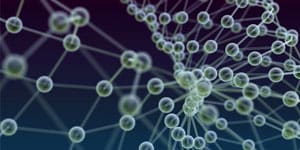High muscle carnosine levels can improve muscle contractile behaviour and reduce fatigue.
 Carnosine (β-alanyl-L-histidine) is a cytoplasmic dipeptide that is present in human skeletal muscles. It is synthesized from β-alanine and L-histidine. Baguet et al. (2010) conducted a study on 19 elite rowers to assess if performance is related to the muscle carnosine levels and if supplementing β-alanine improves the performance of rowers over various disciplines.
Carnosine (β-alanyl-L-histidine) is a cytoplasmic dipeptide that is present in human skeletal muscles. It is synthesized from β-alanine and L-histidine. Baguet et al. (2010) conducted a study on 19 elite rowers to assess if performance is related to the muscle carnosine levels and if supplementing β-alanine improves the performance of rowers over various disciplines.
Pre-test muscle carnosine levels and time to complete 100 m, 500 m, 2000 m and 6000 m all-out test on rowing ergometer were measured on the subjects to assess whether there is relationship between performance and baseline muscle carnosine. After that the subjects were supplemented with either β-alanine or placebo for 7 weeks (5 g/day).
After the 7-week period the carnosine levels increased by 45.3% in soleus muscles and 28.2% in gastrocnemius muscles. The test group was found to be 4.3 s faster on 2000 m than the placebo group, whereas they were 0.3 s slower before the 7-week testing period.
What to learn from this?
- Elite rowers with higher baseline muscle carnosine levels were faster on 2000 m all-out test
- Elite rowers who supplemented β-alanine for 7 days significantly improved their performance
- Muscle carnosine might be used as an important determinant of rowing performance

Baguet et al. (2010).
Source
Baguet A,Bourgois Jan, Vanhee L, Achten E, Derave W. Important role of muscle carnosine in rowing performance. Journal of Applied Physiology 2010; 109: 1096–1101.
